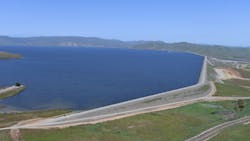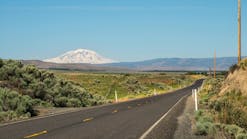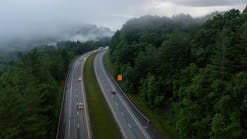The California Department of Water Resources (DWR) announced another increase in the forecasted State Water Project (SWP) deliveries of 2023.
With reservoirs nearing capacity and snowmelt runoff starting to occur, DWR announced that it expects to deliver 100% of requested water supplies, up from 75% announced in March.
The water will be delivered throughout the year to the SWP’s 29 public water agencies that serve 27 million Californians and 750,000 acres of farmland. The last time the SWP allocated 100% was in 2006.
San Luis Reservoir in Merced County, which holds water supply for both the SWP and U.S. Bureau of Reclamation’s Central Valley Project (CVP), is now full. Additionally, Lake Oroville, the SWP’s largest reservoir, and SWP reservoirs in Southern California are expected to be full by the end of May. Statewide, reservoir storage is at 105% of average for this date.
“Water supply conditions and careful management of reservoir operations during this extreme winter allows DWR to maximize water deliveries while enhancing protections for the environment,” said DWR Director Karla Nemeth. “DWR is moving and storing as much water as possible to the benefit of communities, agriculture, and the environment.”
This wet winter and strong runoff conditions has allowed the SWP to make additional water available to any contractor that has the ability to store the water in its own system, including through groundwater recharge. DWR is maximizing the capture and storage of this abundance of snowpack across the state.
Formally known as Article 21 water, this additional water does not count toward SWP allocation amounts. Since March 22, the SWP has delivered 228,000 acre-feet of Article 21 water to local water agencies with 37,000 acre-feet planned for next week.
The SWP typically evaluates the allocation forecasts monthly using the latest snow survey data, reservoir storage and spring runoff forecasts. The 100 percent forecasted allocation announced takes into account that data from April. Runoff analysis will continue, and an additional snow survey will be conducted in May.
While California’s surface water conditions have greatly improved this year following three years of historic drought, several water supply challenges remain in the northern part of the state and in over-drafted groundwater basins that are slow to recover. The Colorado River Basin, which is a critical water supply source for Southern California, is still in the midst of a 23-year drought.



